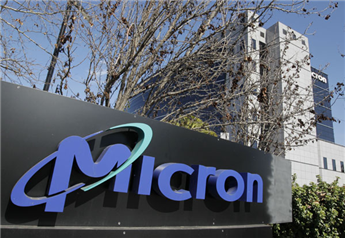
Micron Technology has decided to buy rival Japanese chipmaker Elpida in a deal worth 200 billion yen ($2.5 billion).
Once completed, the deal will see Micron become the world’s second-largest maker of dynamic random access memory (DRAM) chips.
These chips are key components of personal computers.
Elpida had filed for bankruptcy protection in February after being unable to repay debts of 448 billion yen.
“We are creating the industry-leading pure-play memory company,” said Mark Durcan chief executive of Micron Technology.
Mark Durcan added that the deal will help strengthen the combined companies’ market position “through increased research and development and manufacturing scale” and “improved access to core memory market segments”.

The deal will also see Micron get the ownership of Elipda’s 65% stake in Rexchip Electronics, a joint venture between Elpida and Powerchip Technology.
Rexchip, which also makes DRAM memory chips, has manufacturing facilities in Japan and Taiwan.
Micron said that output from Elpida and Rexchip factories could increase its current manufacturing capacity by almost 50%.
“We’ve always had deep requirements for additional capacity and this puts us in great shape to respond to that,” said Mark Adams, president of Micron.
At the same time, analysts said that given the high cost involved in setting up chip manufacturing units, Micron had acquired the Japanese rival for a fraction of the price it would need to invest to build similar infrastructure.
“We estimate this manufacturing capability would cost roughly $6 billion – $8 billion if built new,” said Kevin Cassidy an analyst at Stifel.
DRAM chips manufacturers have been going through a rough patch in recent times due to falling prices and slowing demand.
While Elpida filed for bankruptcy protection earlier this year, Micron posted a net loss of $224 million in the three months to 1 March, compared with a profit of $72 million a year earlier.
The traditional DRAM chips are used in personal computers, the demand for which has been falling amid growing popularity of smartphones and tablet PCs.
Those gadgets mostly use NAND memory chips and that has hurt DRAM chip makers.
However, Micron said Elipda had “built a strong presence in Mobile DRAM”, chips targeted at mobile phones and tablet PCs, which should help it cater to growing demand from the sector.
At the same time, analysts added that Micron may be able to use Elpida’s manufacturing facilities to diversify its product range.